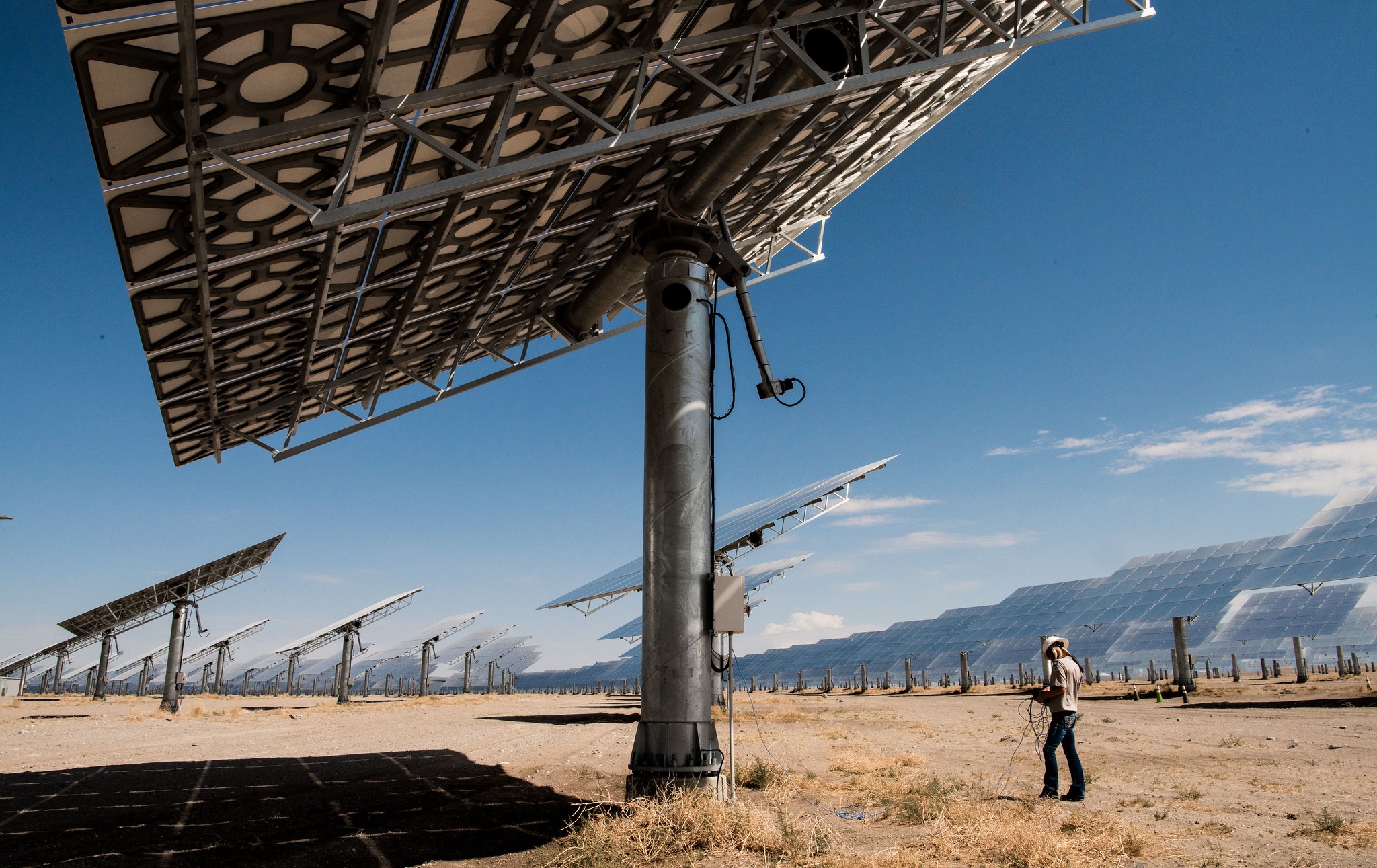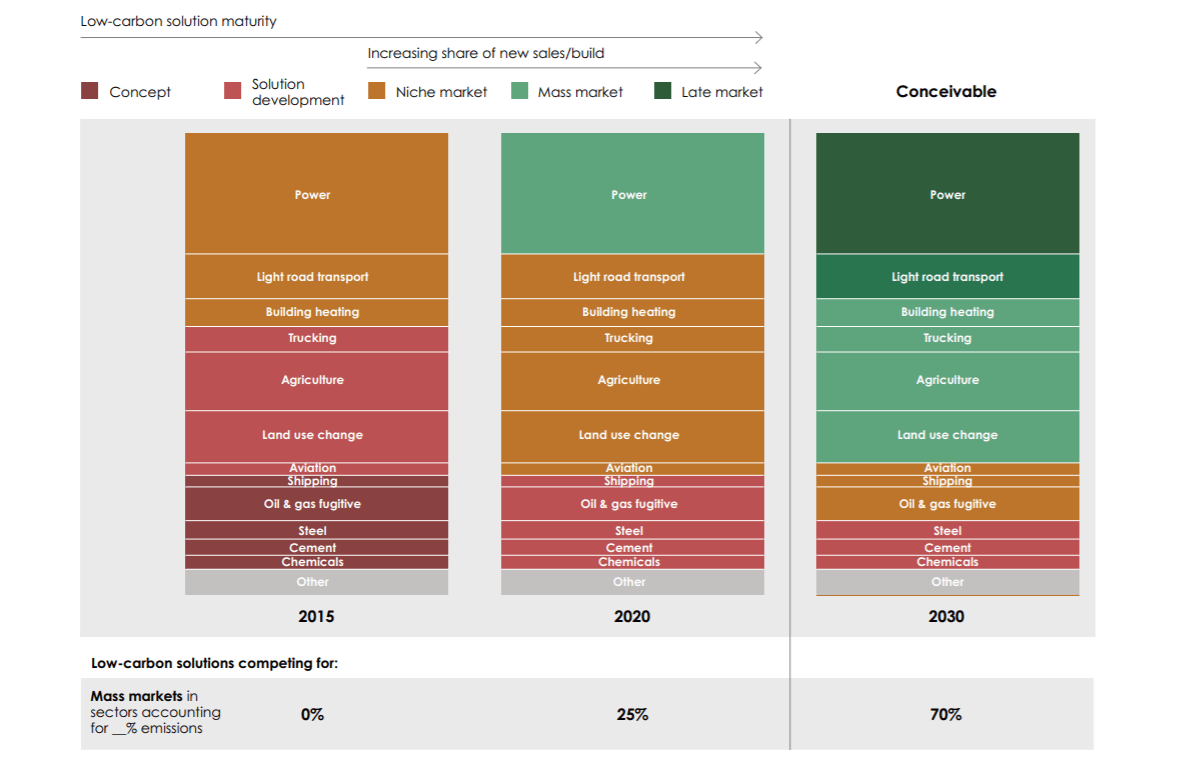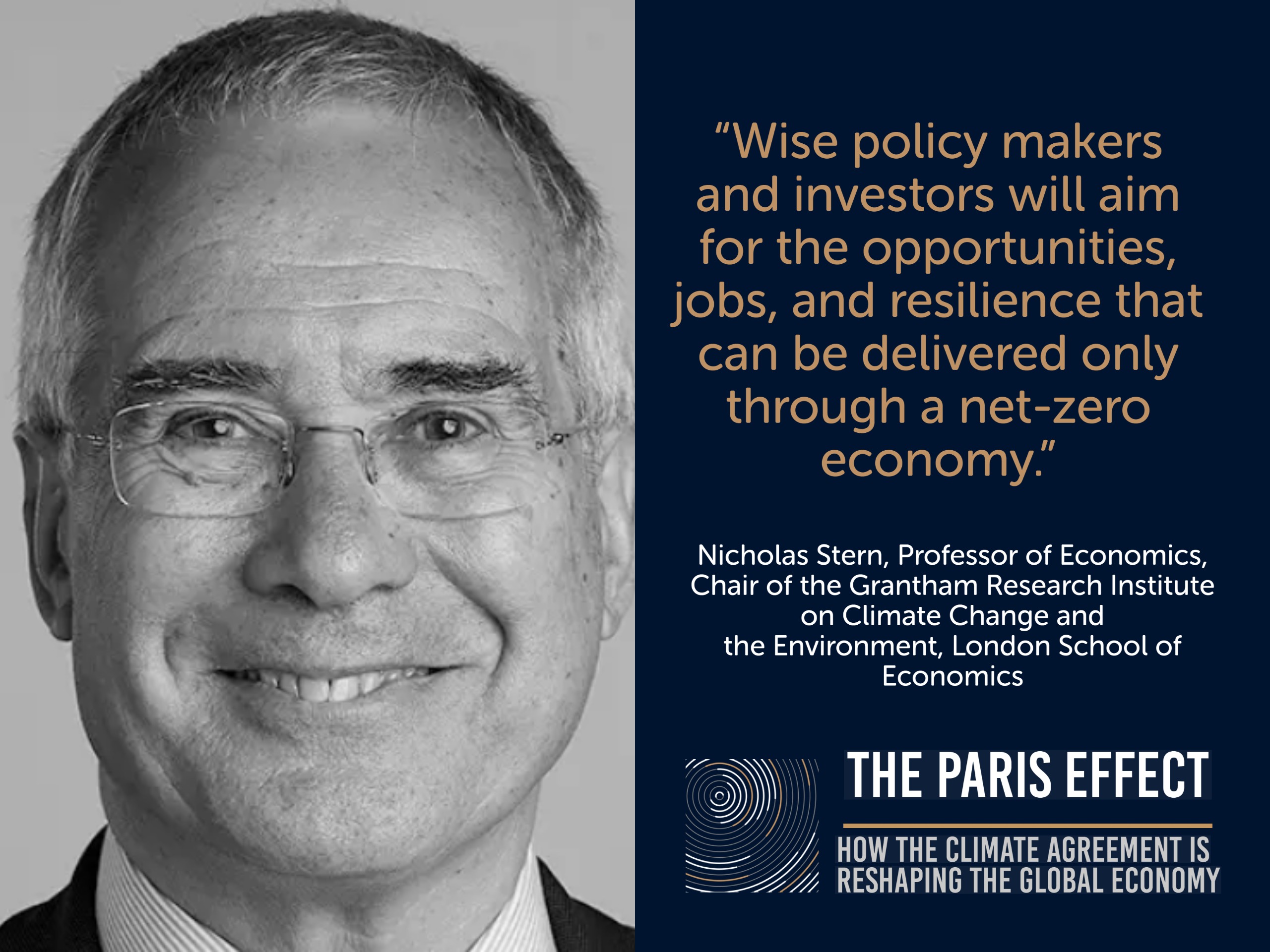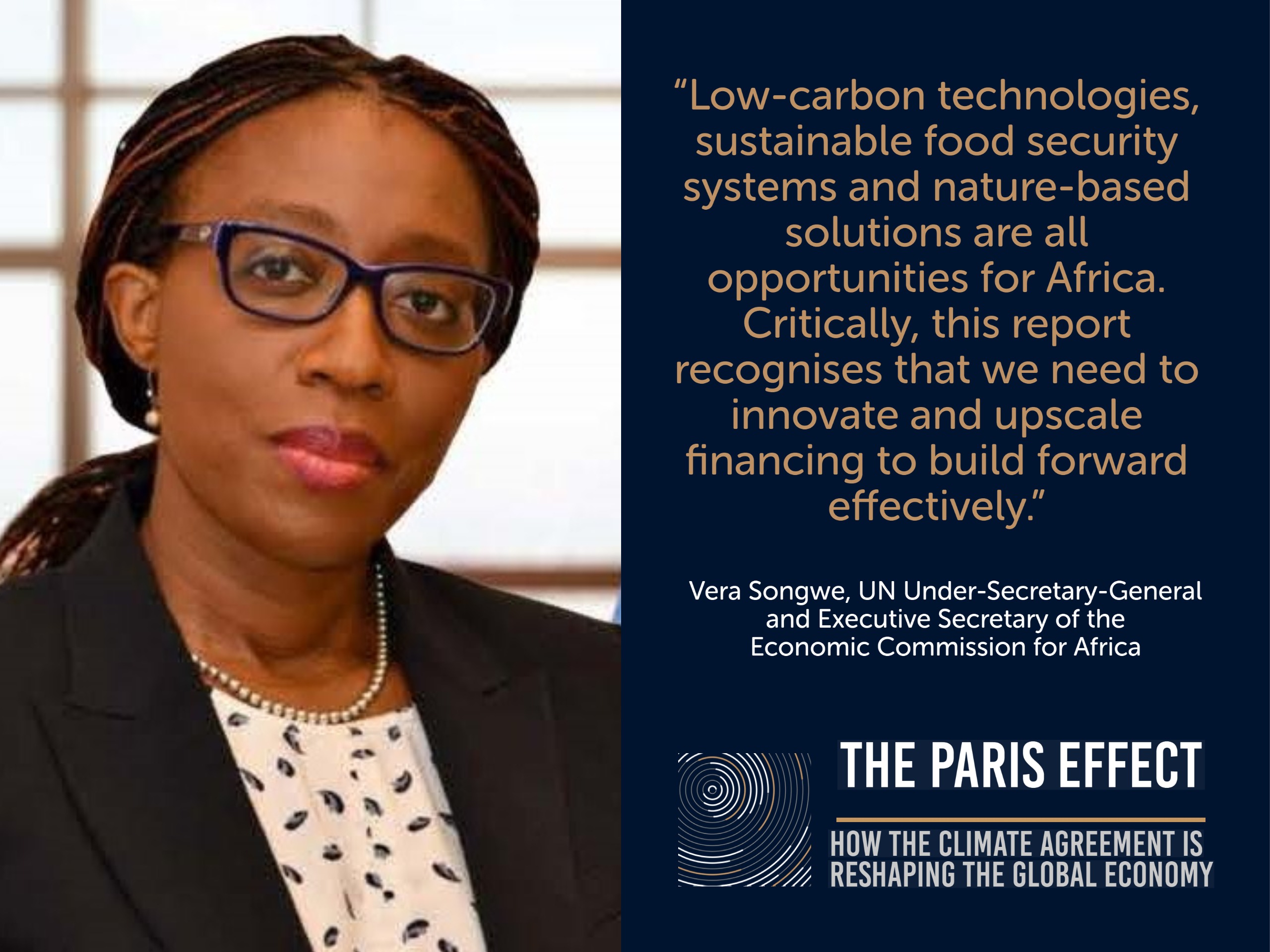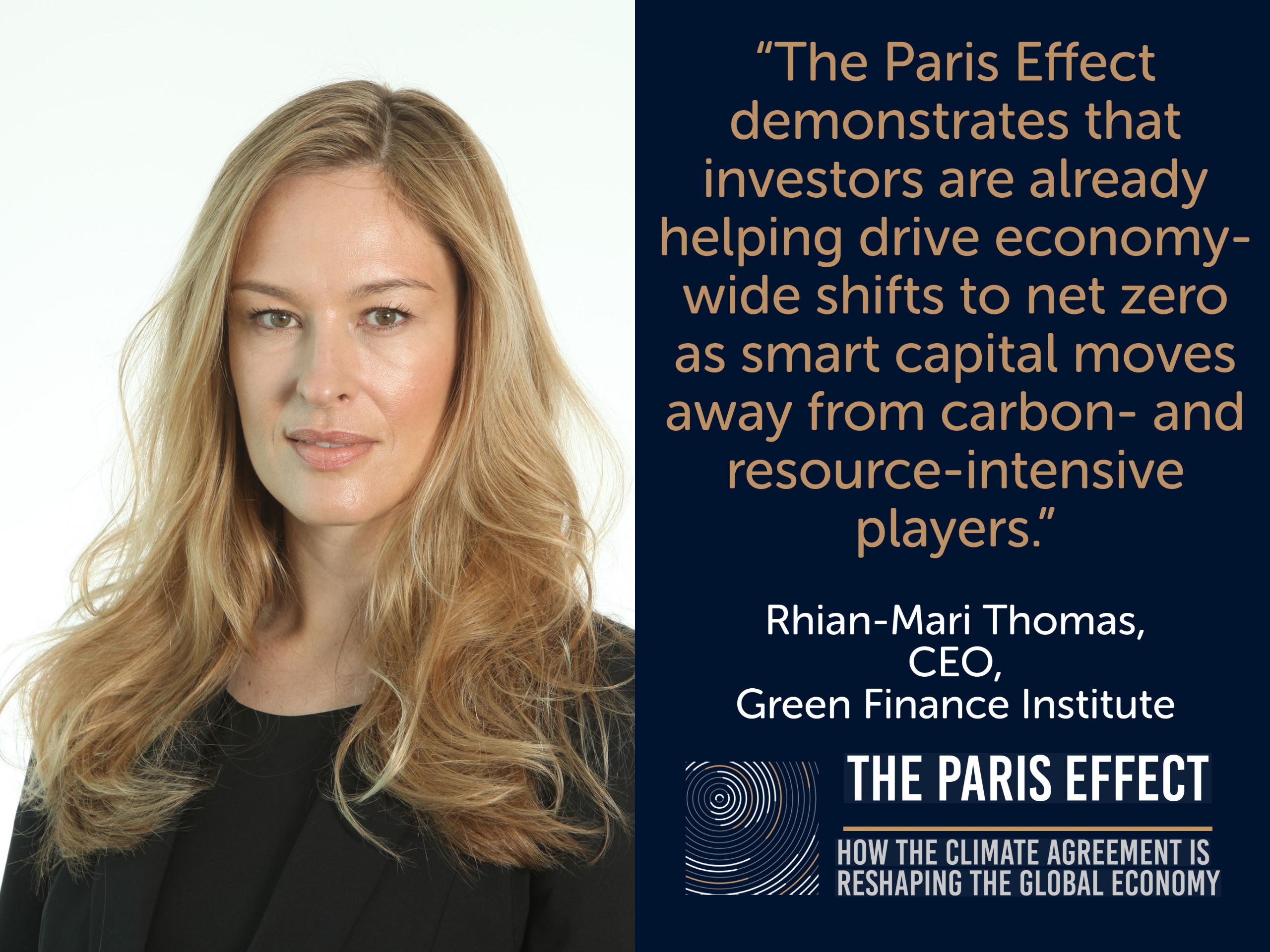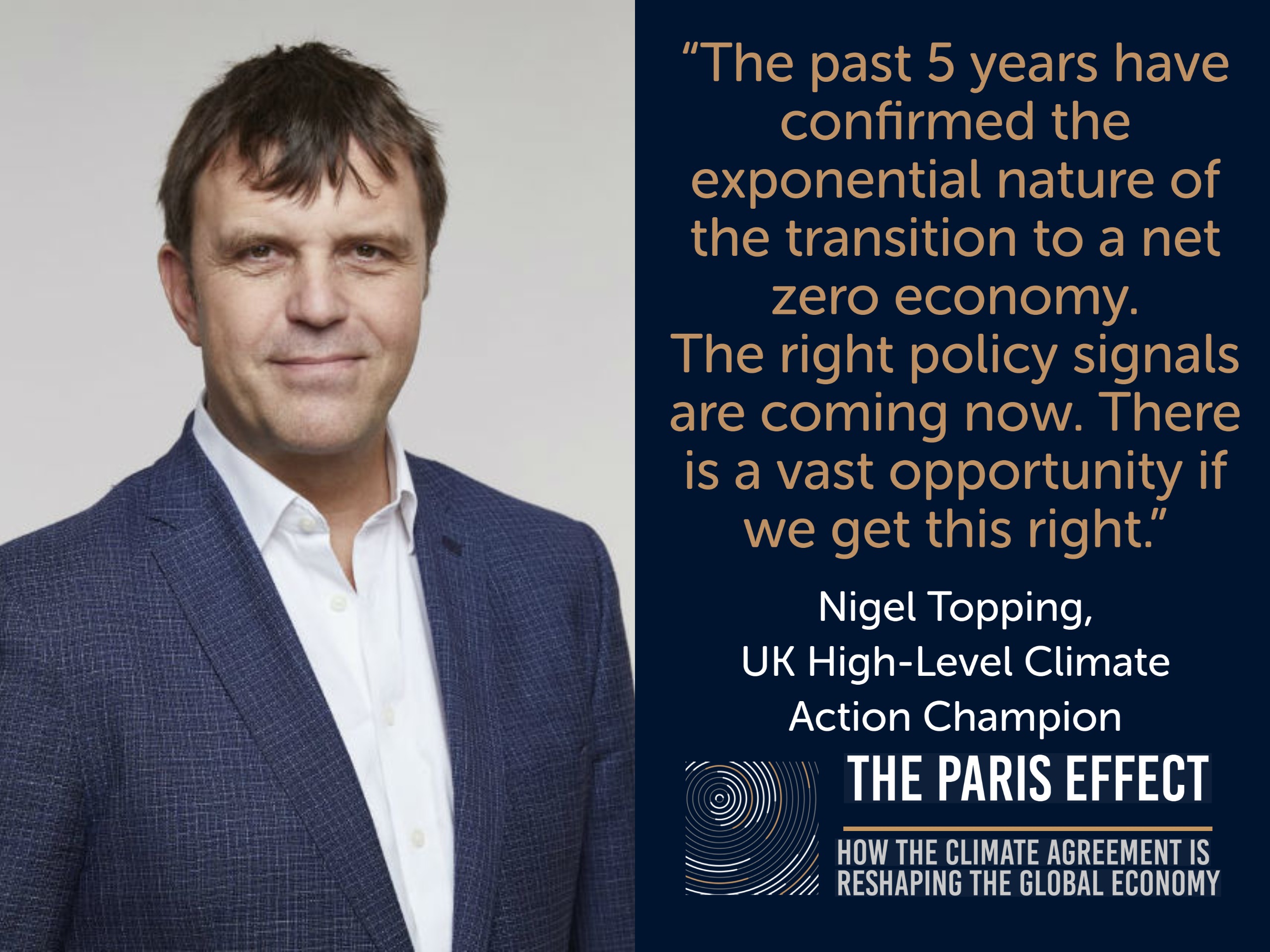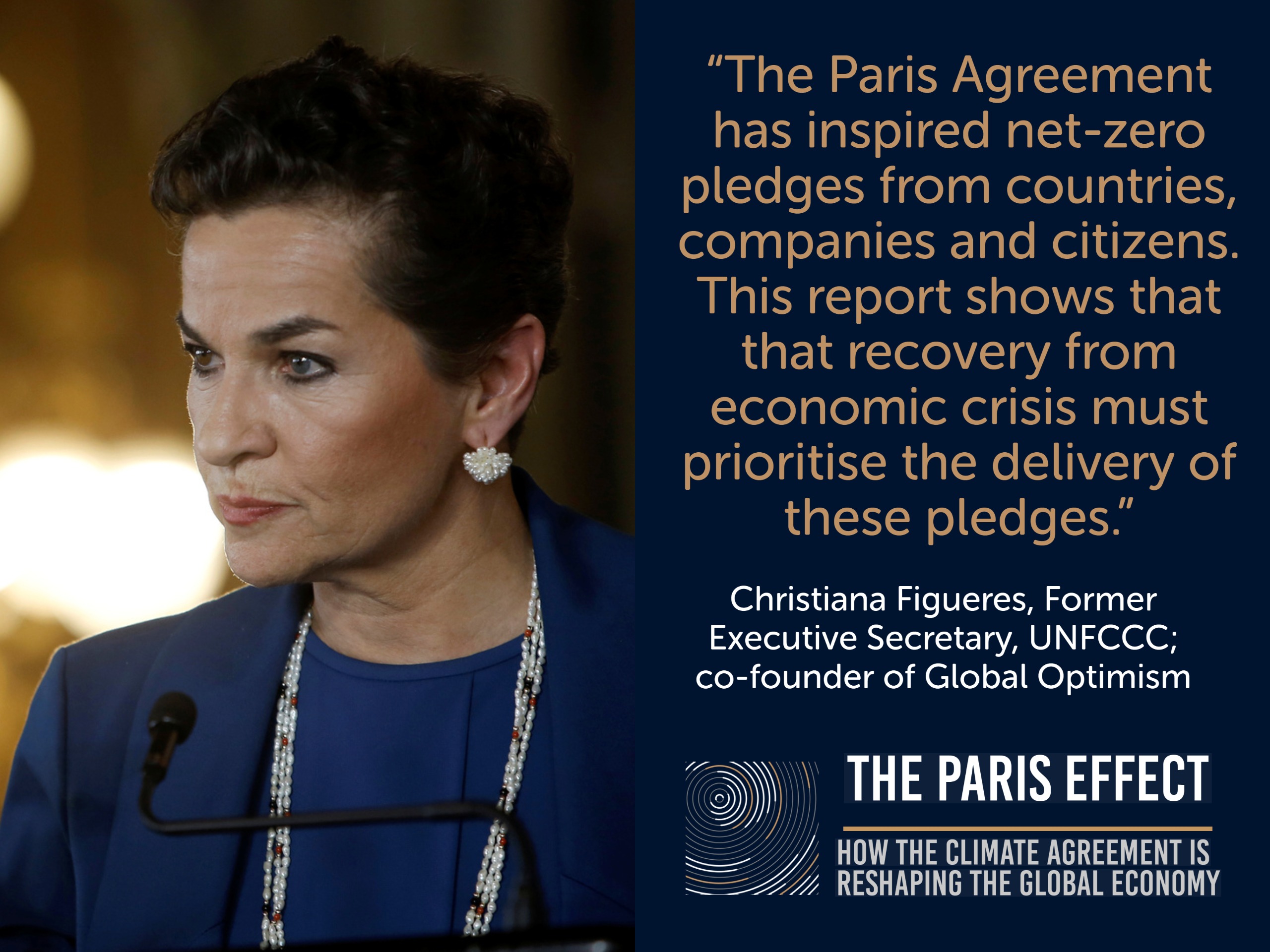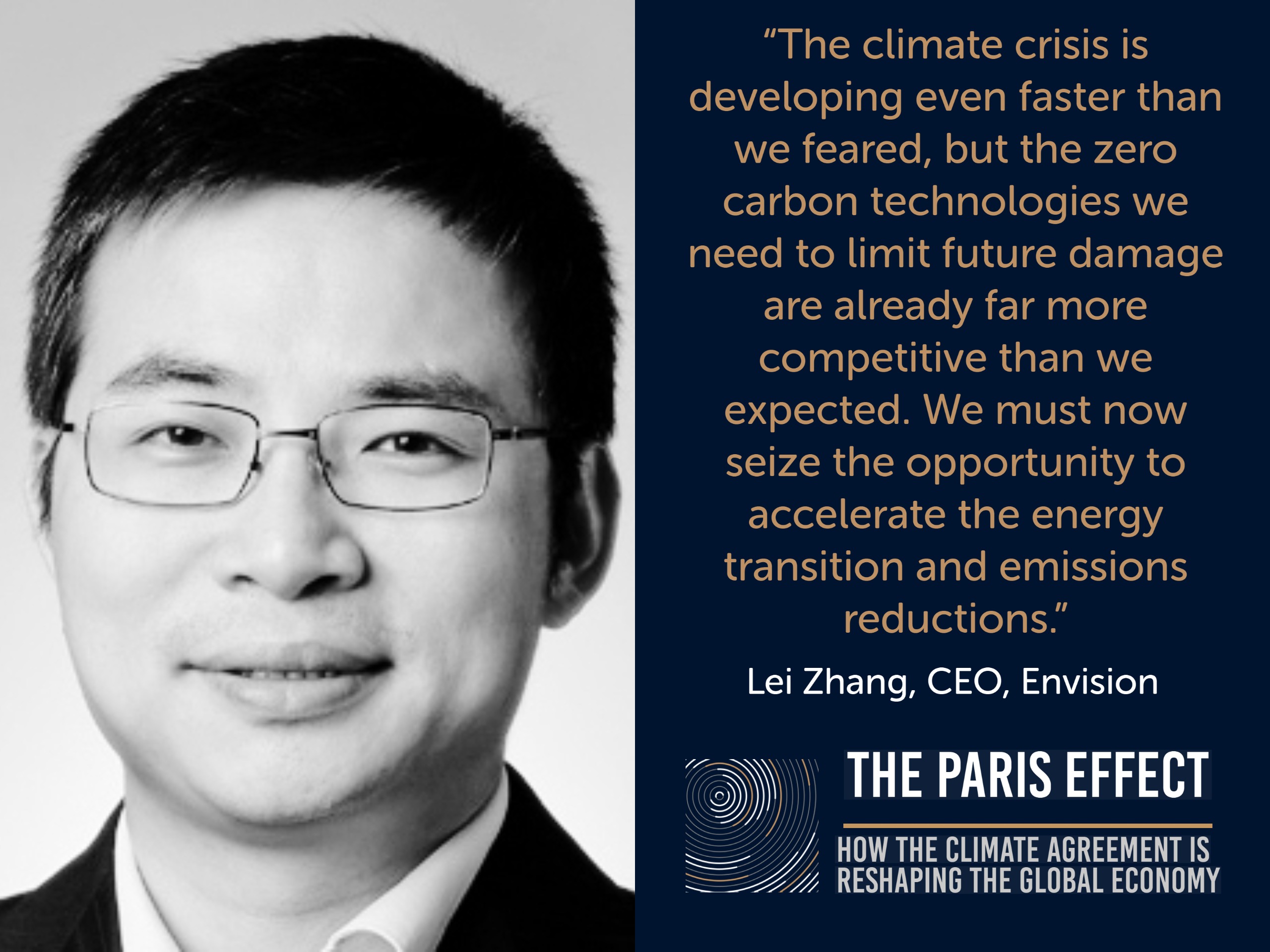The world is not yet on track to avoid dangerous, irreversible climate change. But in the five years since the Paris Agreement, progress on low-carbon solutions and markets has been much faster than many realise. And SYSTEMIQ’s latest report finds that low-carbon solutions could progress rapidly through the 2020s.
Published today, “The Paris Effect” finds that by 2030, low-carbon solutions could be competitive in sectors accounting for nearly three-quarters of emissions; this is up from one-quarter today (electricity) and no sectors five years ago.
“It is clear the global long-term goal of Paris – net zero GHG emissions by mid-century – is now the reference point for governments and financial actors”, says Laurence Tubiana, CEO, European Climate Foundation. “World leaders started a journey in 2015 and now is the time to accelerate.”
The Paris Agreement laid out a clear framework for 195 countries to steadily cut their emissions. This shared direction of travel increased the confidence of political leaders to provide consistent policy signals. In turn, these have created the conditions for companies to invest and innovate, and for the markets for zero-carbon solutions to start scaling – from electric vehicles to alternative proteins to sustainable aviation fuels. These trends have created the conditions for sectors to move towards tipping points where low-carbon solutions can out-compete legacy, high-carbon businesses.
This momentum is coming from countries, companies and investors. By moving further and faster, zero-carbon industries can be scaled in the 2020s, creating sustainable growth and more resilient economies. In sectors from renewable power, to local food economies and land restoration, the growth of net-zero economies in the 2020s can create over 35 million jobs globally. These are needed more than ever in the post-COVID recovery.
Conversely, late movers will not only miss out on the multiple gains from the transformation, but also risk slower growth, lower productivity and job creation, and a loss of competitiveness.
Green for go: As they reach competitiveness through the 2020s, cleaner, low-carbon solutions across a number of sectors can break into mass markets and begin to scale.
As the Executive Secretary of the UNFCCC, Christiana Figueres was one of the architects of the Paris Agreement. Five years on, as the global economy recovers from Covid, she insists that the net zero pledges are more vital than ever: “This report shows that we can transform very quickly and that recovery from economic crisis must prioritise the delivery of these pledges. The net zero future is not a far off vision; we are ready to make the transition now.”
The report highlights that the state of the macroeconomy today further improves the conditions for a shift to a low-carbon economy. Ultra-low interest rates are well suited to clean technologies, with a higher proportion of costs up-front. The growth of digitisation also supports an expansion of resource-efficient, ‘as a service’ business models. And the economic effects of Covid-19 have overturned a lot of assumptions about how we live with implications for transport, and our consumer spending habits.
However, the transition is not assured and governments have a key role to play. Part of this will take the form of direct support: one-third of France’s COVID package – around $30 billion – allocated to green measures, while South Korea’s New Deal directs $95 billion into green and digital technology; meanwhile, countries from Norway to China are using electric vehicle subsidies and building out charging infrastructure to scale the market and boost domestic manufacturing. In addition to de-risking the positives, there’s a strong push for climate transparency: the EU, Australia, Hong Kong, Japan and South Africa are among those considering TCFD-aligned disclosure mandates, helping to make risk in high-carbon assets more visible.
“We know that inadequate action translates into massive and costly climate risk”, says Professor Nicholas Stern, Chair of the Grantham Research Institute on Climate Change and the Environment at the London School of Economics. “The Paris Effect makes it clear that it also puts economies at risk of falling behind the next wave of the creation of prosperity. That wave is already gathering pace and will become a dominant force in growth and transformation over this decade. Wise policy makers and investors will aim for the opportunities, jobs, and resilience that can be delivered only through a net-zero economy.”
Read the full report

